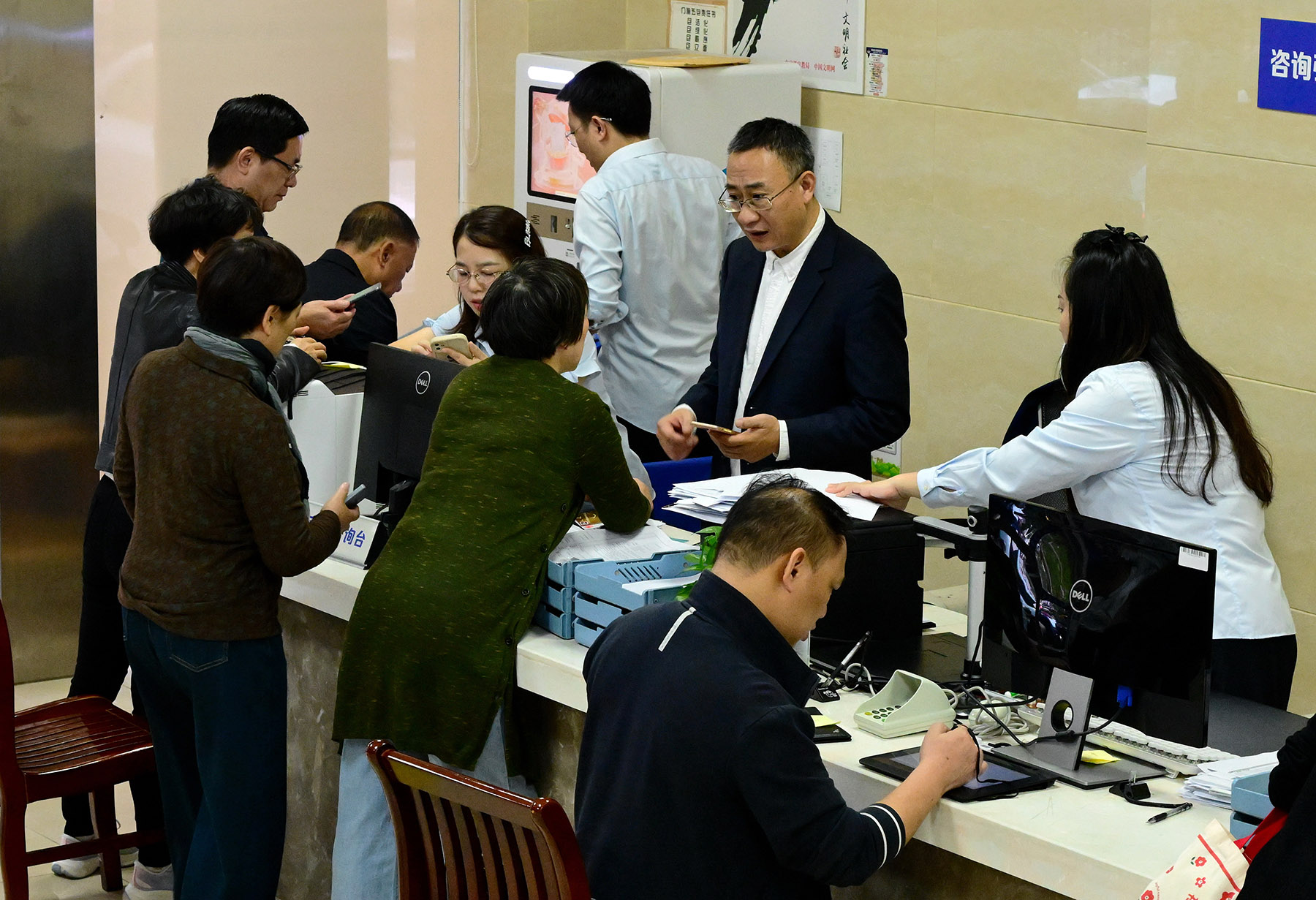Trading value of Shanghai, Shenzhen stock exchanges sets record on Tuesday

As there have been more signs recently of a bull run in the A-share market, including soaring indexes and the stratospheric level of the trading volume, more economic stimulus policies as well as investors' patience are equally important to further consolidate the upward trend of Chinese equities, said experts.
Resuming after the National Day holiday, the benchmark Shanghai Composite Index gained 4.59 percent to close at 3489.78 points on Tuesday, while the Shenzhen Component Index surged 9.17 percent. The technology-focused ChiNext in Shenzhen spiked 17.25 percent. Semiconductor, software development and securities companies led Tuesday's rally.
READ MORE: A-share market set to further buoy confidence
The combined trading value at the Shanghai and Shenzhen bourses stood at 3.45 trillion yuan ($490 billion) on Tuesday, surpassing the previous record of 2.6 trillion yuan on Sept 30, the last trading day before the holiday.
The A-share market's rally on Tuesday came as officials of the National Development and Reform Commission, China's top economic regulator, said on the same day that the country will launch a batch of incremental policies to promote the sustained economic recovery and development.
"China is confident of maintaining steady and healthy economic growth and achieve the full-year growth target," said Zheng Shanjie, head of the NDRC, at a news conference on Tuesday, adding that more efforts will be made to strengthen the countercyclical adjustments for macroeconomic policies.
The incremental policies released in late September attached greater importance to improving the quality of economic growth, supporting the real economy, facilitating the sound development of market entities, and coordinating high-quality development and high-level security, he said.
Since Sept 24, the country's top regulators have come up with supportive measures covering the financial sector, the property market, and support to the real economy, among others.
The measures will be better used to spur more development potential and better achieve this year's growth target, said Zheng.
Meanwhile, continued efforts will be made to boost the capital market, according to Zheng. More effective and comprehensive measures will be introduced to vigorously guide the inflow of long-term capital. Blockages preventing the smoother entry of social security funds, as well as insurance and wealth management funds into the capital market should be removed.
Public companies will be supported in mergers and acquisitions as well as restructuring. The reform of mutual funds should be advanced steadily, and efforts will be made to promulgate measures to protect individual investors, said Zheng, noting that these policies will be released at a faster pace.
Liu Gang, managing director of China International Capital Corp, said the measures announced in September had exceeded market expectations and rekindled investors' passion, emphasizing the financial measures' support for the stock market.
These have served as a driver for the recent bullish performance of the A-share market. But the market's future performance will be determined by the pace and scale of successive policies, especially fiscal policies, Liu said.
Luo Zhiheng, chief economist at Yuekai Securities, said that fiscal and property market policies should better coordinate with the recently released monetary policies to stabilize investors' confidence and expectations. Increasing the scale of this year's budget deficit, accelerating the issuance of special bonds, granting subsidies to special groups of people and the issuance of additional treasury bonds can be possible options in terms of supportive fiscal measures, he said.
China may adopt moderate fiscal stimulus of about 1.5 to 2 trillion yuan in the short term, which is also a reasonable level, said Wang Tao, chief China economist at UBS Investment Bank.
ALSO READ: SE Asia seen benefiting from China’s stimulus
Chen Guo, chief strategist at China Securities, said that the Chinese stock market's recent bullish performance is supported by the revaluation of Chinese assets and recovered confidence. But a well-grounded overall bull run still needs time, especially the further improvement of economic fundamentals. Investors should have patience for the medium term, he said.
Noting that the A-share market will enter a period of sustainable growth in the medium term, during which fluctuations cannot be avoided, Zhang Qiyao, chief strategist at Industrial Securities, said there is still room for a rise in the short run. Investors should watch for how long the bullish trend will last rather than focus on short-term peaks, he said.
In a report released on Monday, analysts from Goldman Sachs raised 10 reasons to increase exposure to A-shares, including strong economic stimulus, upbeat investors' mood, undervalued Chinese equities, companies' improving earnings and a relaxed external environment.


